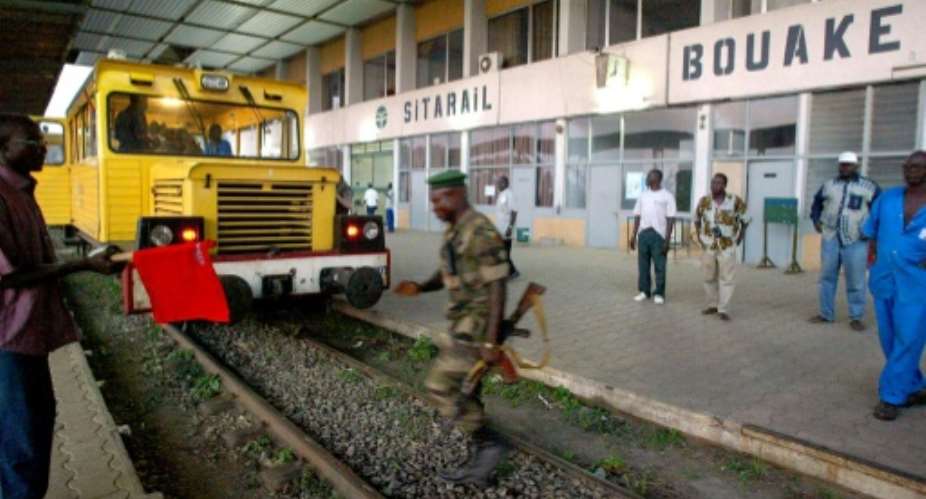Ivory Coast and Burkina Faso on Monday began work to overhaul and expand a single-track rail line connecting Abidjan to the Burkinabe capital that is a vital link between the Sahel and Atlantic coast.
Renovating the 1,260-kilometre (782-mile) track -- which had first been announced in 2015 with no work being started -- is expected to take eight years.
All parties involved hope the project will improve traffic and trade between the two West African neighbours.
"Investment for the work, totalling 396 million euros ($470 million)... is the responsibility of the operator," Ivorian Transport Minister Amadou Kone said at the launch ceremony, referring to the giant French transportation company Bollore.
Burkinabe Transport Minister Souleymane Soulama said the project would make the current trains running at 40 kilometres (25 miles) per hour "a distant memory" and that speed and comfort would be the new standards.
Two new passenger trains and a locomotive will be added, 853 kms of track will be relaid, and 31 stations are to be refurbished.
"At the end of the work, Sitarail will be able to transport five million tonnes each year, including two million tonnes of general freight and three million tonnes of ore, and 800,000 passengers," said Eric Melet, chief executive for development at Bollore Transport and Logistics.
This is the third time in two years that the countries have announced these renovations.
The unelectrified single-line track traces its origins back to the late 19th century, when France was looking for ways to link the colonised Sahel to its trading posts on the Atlantic.
After numerous interruptions, the line opened in 1954. After an economic crisis in the 1990s, management of the railways was handed over to Sitarail.
The line plays a key role for landlocked Burkina Faso in transporting cotton and manganese to the coast, and in importing oil, cement and fertiliser, but it suffers from poor tracks and ageing rolling stock, which limits train speed.
In September 2016, all traffic was stopped for two weeks after a bridge on the Ivorian side collapsed as a goods train was passed by, although no one was injured.
Bollore has a 67-percent stake in Sitarail, Burkina Faso and Ivory Coast each have 15 percent, and the remaining three percent is owned by the workforce.





 We’ll no longer tolerate your empty, unwarranted attacks – TUC blasts Prof Adei
We’ll no longer tolerate your empty, unwarranted attacks – TUC blasts Prof Adei
 Bawumia donates GHc200,000 to support Madina fire victims
Bawumia donates GHc200,000 to support Madina fire victims
 IMF to disburse US$360million third tranche to Ghana without creditors MoU
IMF to disburse US$360million third tranche to Ghana without creditors MoU
 Truck owner share insights into train collision incident
Truck owner share insights into train collision incident
 Paramount chief of Bassare Traditional Area passes on
Paramount chief of Bassare Traditional Area passes on
 Two teachers in court over alleged illegal possession of BECE papers
Two teachers in court over alleged illegal possession of BECE papers
 Sunyani: Victim allegedly shot by traditional warriors appeals for justice
Sunyani: Victim allegedly shot by traditional warriors appeals for justice
 Mahama vows to scrap teacher licensure exams, review Free SHS policy
Mahama vows to scrap teacher licensure exams, review Free SHS policy
 Government will replace burnt Madina shops with a new three-story, 120-store fac...
Government will replace burnt Madina shops with a new three-story, 120-store fac...
